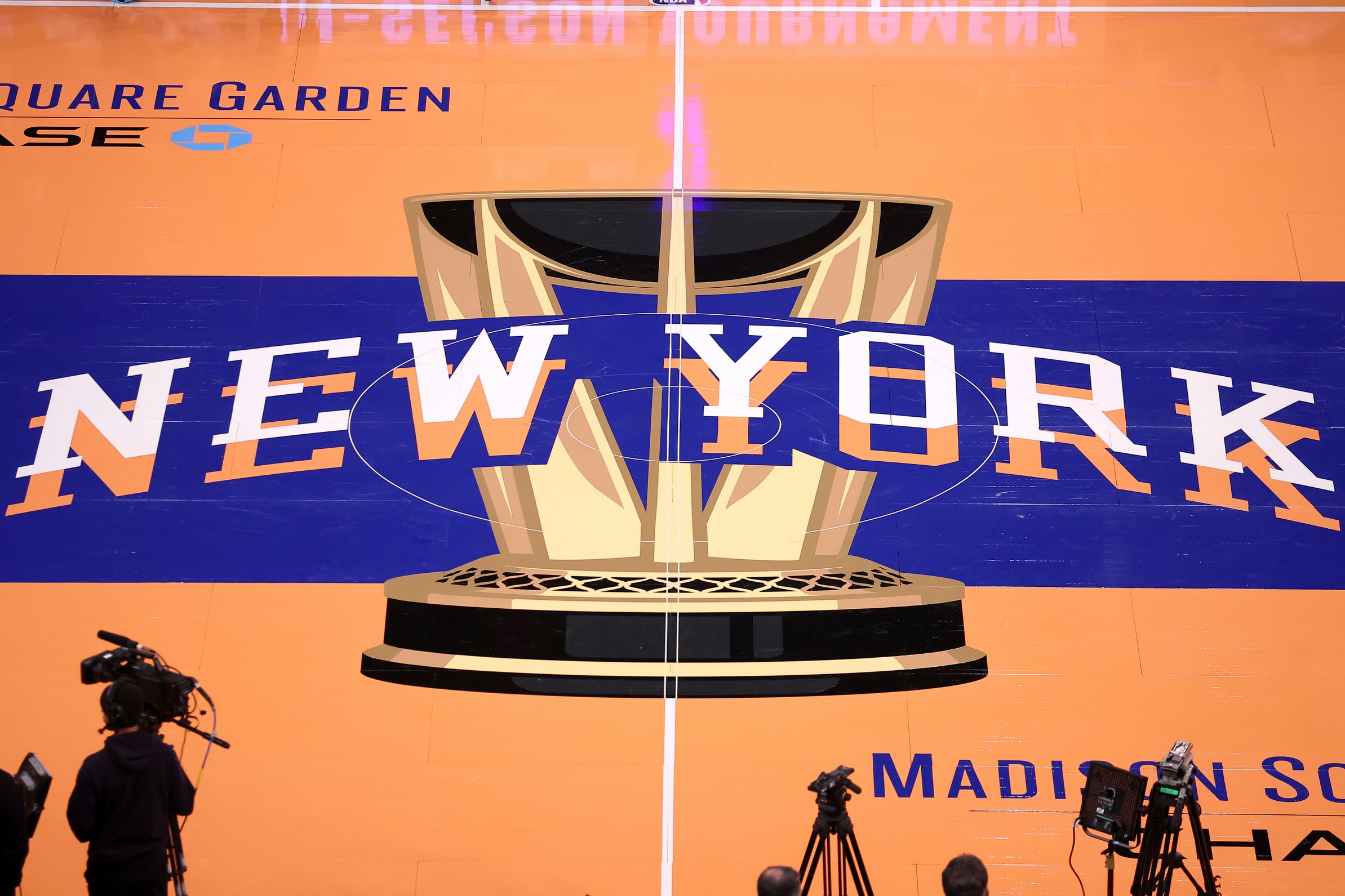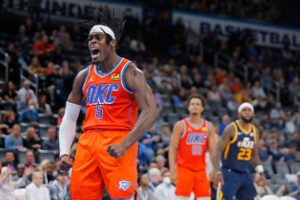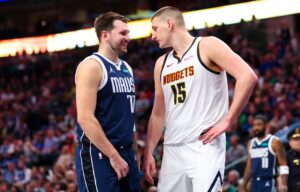The New York Knicks have executed an impressive financial strategy while acquiring Karl-Anthony Towns. This will allow them to stay competitive while managing their salary cap expertly. Despite taking on Towns’ massive $49.2 million contract, the Knicks have maneuvered to avoid the punitive second apron in both the 2024-25 and 2025-26 seasons. The Knicks found a loophole in the CBA by packaging three players who are making $1 above the minimum contract New York avoided the second apron. Notably, as a first apron team the Knicks aren’t allowed to aggregate minimum contracts.
Second Apron Watch: The New York Knicks Are Performing ‘Magic’
Understanding the Second Apron and the Knicks’ Position
For the 2024-25 NBA season, the second salary cap apron is set at $188.9 million. Teams exceeding this limit face strict penalties. These include losing access to the mid-level exception and being unable to sign buyout players. Currently, the Knicks are projected to remain just under the second apron, even with Towns’ contract included.
This balancing act is critical. By keeping their payroll below the second apron, the Knicks maintain more roster flexibility. This will be vital as they pursue a deep playoff run. The decision to prioritize cap management while bringing in high-level talent shows the Knicks are thinking not just about today but also about future seasons.
The Role of Jalen Brunson’s Contract Discount
Jalen Brunson played a crucial role in keeping the Knicks under the second apron. Originally set to be eligible for a five-year, $269 million extension in 2026, Brunson made a significant financial sacrifice. By declining his player option for 2025-26 and signing a new four-year, $156.4 million deal, he essentially helped subsidize the team’s ability to bring in Towns. Had Brunson waited to take his supermax deal, the Knicks would have likely been pushed over the second apron. This would have limited their ability to build a championship-caliber roster.
This selfless move from Brunson allows the Knicks to remain competitive under the cap while keeping their core intact. Brunson’s contract is a bargain at $24.9 million. He has established himself as one of the best guards in the league.
Key Contracts on the Books
Beyond Brunson and Towns, the Knicks have several key contracts to manage. Mikal Bridges, a vital two-way player for their championship ambitions, is locked in for two more seasons and has a reasonable $23.3 million cap hit this upcoming season. OG Anunoby, known for his defensive versatility, is on a five-year, $212.5 million deal. Both Josh Hart and Mitchell Robinson, crucial rotation players, are signed to long-term deals. Hart is earning $18.1 million and Robinson is earning $14.3 million for the 2024-25 season.
These contracts are structured to keep the Knicks under the second salary cap apron for this season and next, even with Towns on board. The Knicks have successfully balanced talent and financial management, ensuring value without entering tax trouble.
Future Cap Flexibility
The Knicks’ cap flexibility is even more remarkable when looking toward the 2026-27 and 2027-28 seasons. By then, the Knicks will exceed the second apron. However, they are prepared for this with a calculated plan. Towns’ contract will expire after the 2027-28 season. At this point, the Knicks can “duck back” under the second apron. As a result, they will avoid the more severe penalties that accompany long-term spending above the limit.
This forward-thinking approach allows the Knicks to compete for titles in the short term while maintaining future flexibility. Once Towns’ contract comes off the books, they will have the option to reset their financial situation and either extend key players or bring in new talent.
A Knicks’ Masterclass in Cap Space Management
The New York Knicks front office deserves credit for orchestrating a delicate balance of big-name talent acquisition while maintaining salary cap flexibility. By staying under the second apron for the 2024-25 and 2025-26 seasons, the Knicks can remain competitive without sacrificing future opportunities.
The selfless decision by Brunson to take a smaller contract ensures the Knicks can navigate the complexities of the NBA’s cap system. When Towns’ contract expires, they will have the financial breathing room to stay competitive for years to come. Simply put, the Knicks are performing salary cap wizardry and positioning themselves for sustained success.






